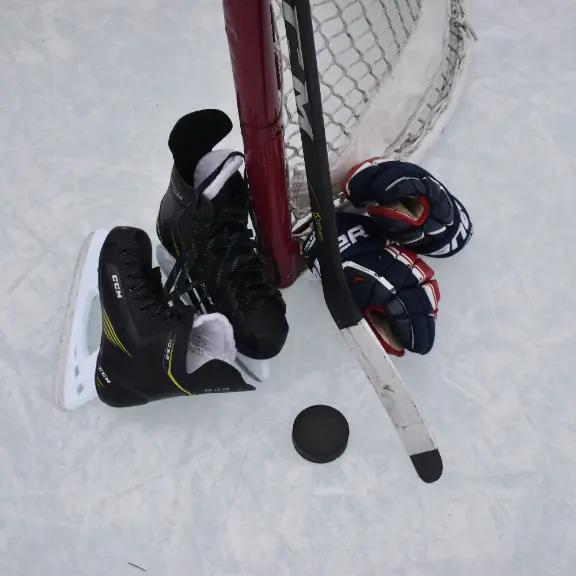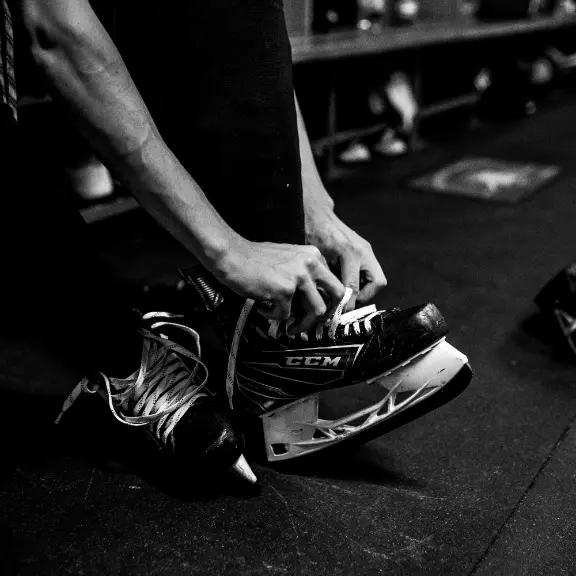Mysterious Crisis: Top Hockey Players and the Struggle with Cocaine Addiction
M.Sc. et B. Radek German
Top hockey players are often seen as model athletes who symbolize determination, hard work and loyalty to their team. But behind the wall of fame and success can also be hidden a dark side - addiction to cocaine. This issue is becoming more and more visible, raising questions about how the sports industry and society as a whole can help these players overcome their struggles, as well as how it really is.

Cocaine itself is a highly addictive drug and has a special allure for hockey players. Its stimulant effects can enhance on-ice performance, provide a temporary sense of euphoria and confidence, and reduce fatigue. However, the cost of this short-term advantage is huge. Cocaine can have devastating effects on an athlete's physical health, mental stability and career.
For many top hockey players, the pressure to perform is enormous. From the expectations of fans and managers, or parents, mostly fathers, to their own desire for success, players face uncompromising pressure that can lead to an escape into drugs. Additionally, the lifestyle associated with professional hockey—the frequent travel, lack of stability, and exposure to temptation—can be particularly challenging for them.
It is important to remember that cocaine addiction is not just a problem for the players themselves. This situation also has an impact on their teams, families and fans. Cocaine addiction can cause the breakdown of relationships, decrease performance on the ice, and even have legal consequences for players and their sports team.
So how can we approach this issue? It starts with recognizing that cocaine addiction is not just a moral failing, but a complex health problem that requires support and treatment.
For many top hockey players, hockey represents not only a professional career, but also a way of life and identity. Their ability on the ice often determines their worth as individuals and is often the only measure by which they feel they can prove their worth. This constant pressure to perform leads many players to feel like they have to constantly prove their worth and ability. However, despite all the fame and success they can achieve, many players still struggle with feelings of inner emptiness and lack of confidence. Even the greatest achievements on the ice can be a temporary band-aid for a deep emotional wound that often never heals. Cocaine can then become an attraction for these players who seek an escape from their own emotions and feelings of inferiority. Its short-term elation and sense of euphoria can momentarily ease their inner struggle and allow them to forget their worries and anxieties. However, this escape from reality is only temporary in nature and ultimately only exacerbates their problems.

Hockey as a sport brings many emotional peaks to its players. Scoring a goal, winning an important match or celebrating a team's success are moments of joy and glory that players can experience more intensely than at other times. These exciting events release the hormone dopamine in the players' brains, which is associated with feelings of happiness and reward. This double dose of positive emotions can be overwhelming for players, even off the ice. The desire to relive these feelings can lead players to seek other ways to achieve similar feelings of euphoria and excitement, including using cocaine. However, while hockey can provide players with short-lived moments of happiness, it is important to remember that these feelings are temporary and superficial.
The fame and popularity experienced by top hockey players can be like a drug in itself. Being known and admired by fans gives players a sense of recognition, self-esteem and even a sense of superiority. This fame can be so strong that it becomes a desire for more and more attention and recognition. These aspects can act as a feeding system that "artificially" satiates the individual in case of created deficits and deprivations from youth. However, like any addiction, the desire for fame has its dark side. The more players become involved in the race for popularity and recognition, the more vulnerable they can become to the stress, pressure and pressure that comes with their fame. Lack of attention, criticism or even a fall from fame can cause a sense of failure and insecurity. In this context, cocaine becomes an attraction for players who are looking for other ways to maintain their fame and suppress their fears and doubts. The short-term feeling of euphoria and confidence that cocaine provides can be an attractive means for them to escape from reality and maintain their outer facade of a strong and successful athlete. However, this addiction to fame and popularity has its limits and can have serious consequences for the players' mental and physical health.
Professional hockey leagues should adopt an approach that does not condemn, but rather supports players who struggle with addiction. This includes working to remove the stigma associated with addiction and providing adequate resources and programs for prevention and treatment. In addition, it is important that players have enough support from their teams and colleagues, whether through open communication about mental health or accessible and discreet help. Ultimately, it is crucial that players have access to professional medical help and therapy to help them overcome their addiction and regain control of their lives. Elite hockey players face many challenges, and cocaine addiction is just one of them. It is up to us as a society to provide them with the support and resources they need to overcome this difficult situation and return to a healthy and productive career on the ice. The key to solving this problem is prevention, early intervention and providing appropriate support for players struggling with this addiction.
Photo: Unsplash
BE IN THE IMAGE
Information, articles and news
Do you need help?
You can send us a message or call us every day from 8 a.m. to 8 p.m. +420 228 226 101
This website is using cookies
You can either allow them all with the "I agree to all" button below, refuse or set the "Detailed settings" in detail. You can also change the selection later. More information about cookies in the Cookie Policy .




